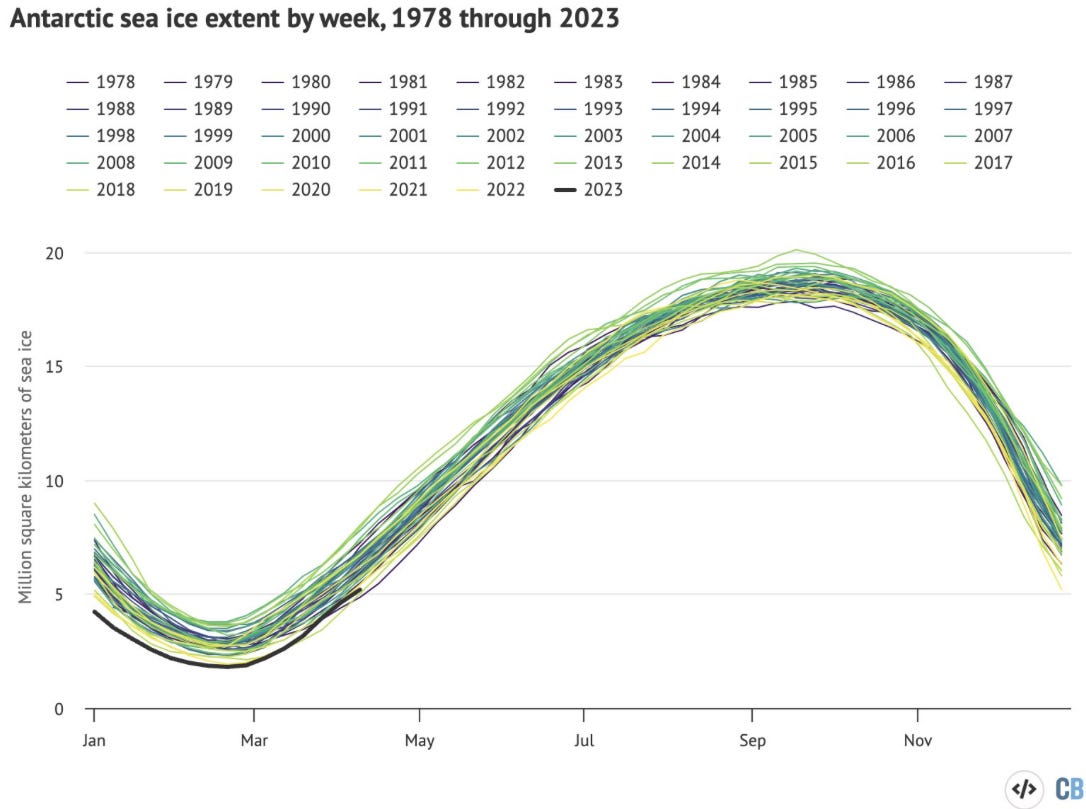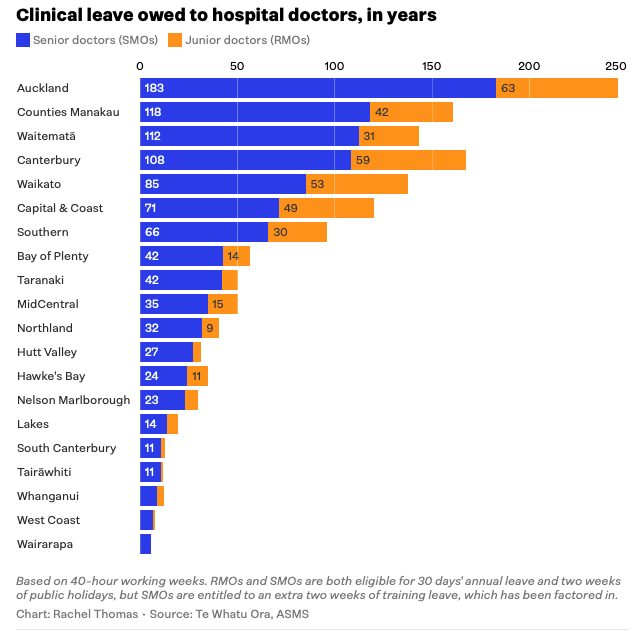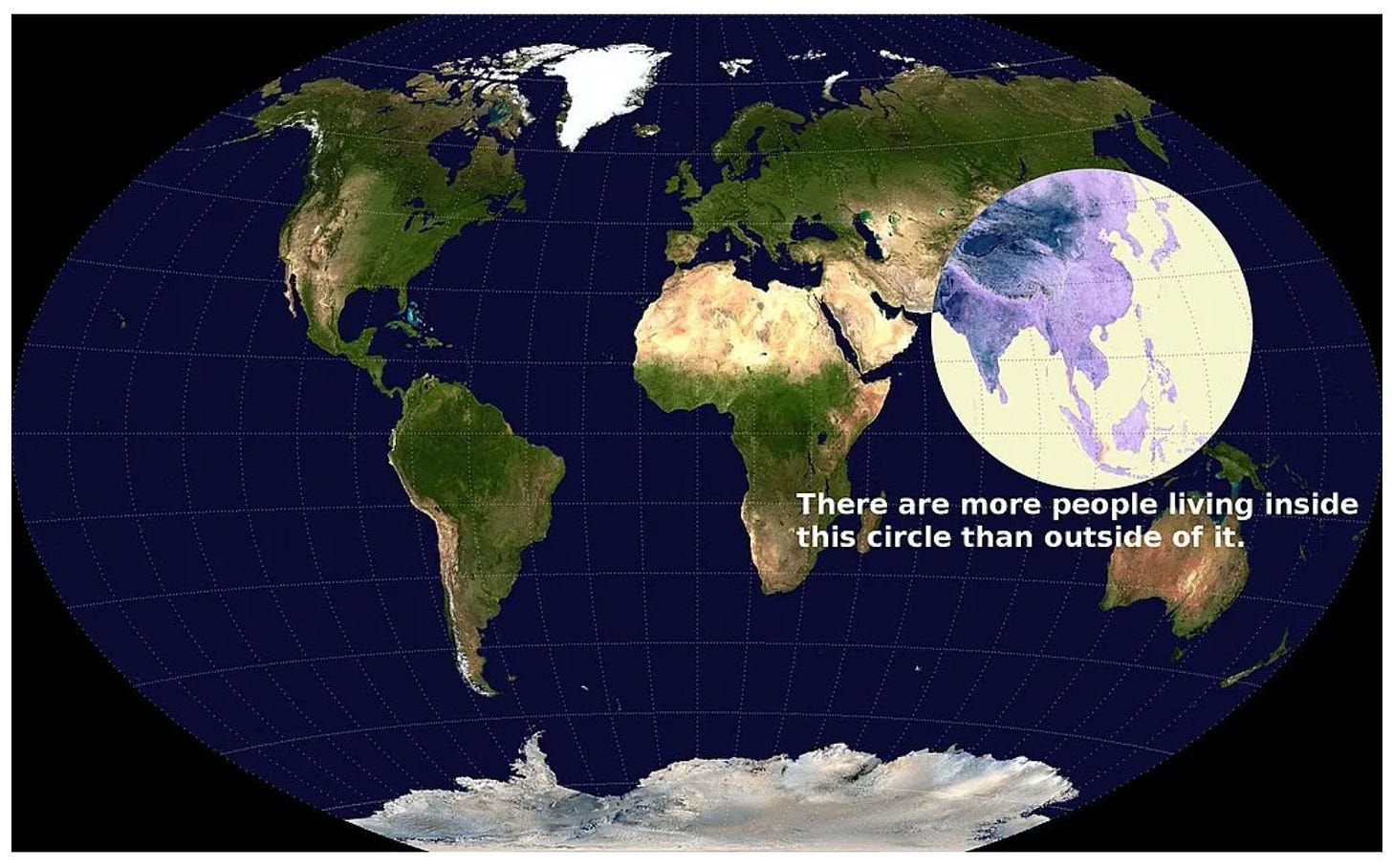
TL;DR: - A survey of 150 pharmacists last month has found the $5 co-payment fee for prescriptions is leading to widespread distress, mental health incidents and unnecessary surgeries costing billions per year — all to earn the Government about $150 million a year in fees and to repay public debt just a tiny bit faster.
The Independent Community Pharmacy Group survey found the co-payment fee, which is $5 per prescription up to a maximum of $100 per year, contributed to their most vulnerable patients suffering strokes, heart attacks, sight loss, failed kidneys, breathing problems, mental health crises, and amputations. The group called this morning for the fee to be dropped, citing a University of Otago study released in February that showed each extra dollar earned by the fee was costing $18 in extra hospital costs — effectively meaning the $150 million in fees are costing taxpayers $2.65 billion per year, as I wrote in February.
Paying subscribers can see more detail and analysis on the co-payment issue below the paywall fold and in the podcast above. Please advise in the comments if you want the full post opened up for public consumption, sharing and listening.
Penny wise and pound soul destroying
Any suggestions that the Government is concerned about or measures long-term and overall wellbeing in making budget decisions should be set against what it actually does with policies that appear not to assess the true costs of not spending in certain areas in health, education, transport and housing.
Here’s a couple more examples today, starting with the pharmacy prescription co-payment.
The Independent Community Pharmacy Group survey published today found the co-payment fee, which is $5 per perscription up to a maximum of $100 per year, contributed to the most vulnerable patients suffering strokes, heart attacks, sight loss, failed kidneys, breathing problems, mental health crises, and amputations. The group called this morning for the fee to be dropped, citing a University of Otago study released in February that showed each extra dollar earned by the fee was costing $18 in extra hospital costs — effectively meaning the $150 million in fees are costing taxpayers $2.65 billion per year, as I wrote in February.
Pharmacists called the fee "inhumane" leading to "soul destroying" consequences in the survey. Here’s a selection of quotes from the survey:
Schizophrenia and organ transplant patients
"Since with each [untreated] episode of schizophrenia, the impact of the illness gets progressively worse, it was heartbreaking to watch," reported one pharmacist. Organ transplant patients and patients with infections are also affected: "A young man [was] unable to pay for his flucloxacillin prescription. He ended up in hospital on iv antibiotics for a few days," reported another.
What happens when the fee is removed
In some areas where the government temporarily removed the prescription fee after Cyclone Gabrielle, pharmacists reported the waiver had immediate community health benefits.
"Without the fee, their patients were happier, less stressed and more engaged, and everybody picked up all their prescriptions," says Chan. "These on-the-ground, immediate, real-time effects give us hope. They show our vision of a more equitable and effective health system due to fees-free prescriptions is well within reach.
"Removing the patient co-payment prescription fee for everyone is the easy thing to do and the right thing to do for community wellbeing and to ease the burden on our over-stretched health system."
‘One day he had a massive stroke’
"The worse case I know of is a man who didn't pick up medsbecause of the price. He didn't tell anyone, even his whanau. Then one day he had a massive stroke." Wellington pharmacist
Funding for pregnancy scans blocked again last year
Secondly, there’s the situation with pregnancy scans, which cost $30 to $165, as Nikki Macdonald reports this morning in The Post-$$$
Pregnancy scans, which screen for potentially fatal abnormalities and check growth rate, are a costly anomaly in what is supposed to be a free maternity system.
Way back in 2000, health authorities called for pregnancy ultrasounds to be fully funded. And report after report since has identified them as a barrier to keeping the most vulnerable babies safe. But the service remains a postcode lottery, after a 2022 budget bid to increase funding was rejected.
Instead, health funders in some areas pay the surcharge, making ultrasound free for pregnant women. In other regions, prospective parents face bills of hundreds of dollars, and in rural areas women can wait a month for the timecritical scans. The Post-$$$ (Nikki Macdonald)
Elsewhere in the news this morning
Housing matters - The University of Auckland released its latest wave of research (Now we are twelve) from its Growing Up in New Zealand longitudinal study this morning, including its findings from the experiences of 4,500 12-year-olds, including that:
around seven percent of young people experienced homelessness at some point in the last few years;
about half of young people had moved homes at least once between age 8 and 12; and,
about 20% of young people had experienced unstable tenancies or worsening residential stability since birth.
Food matters - The same study found 15 percent of twelve-year-olds were living in households with moderate levels of food insecurity and another two percent were living in households with severe food insecurity, which was similar to what the study found when the children were eight, but the use of special food grants and food banks among the families had increased from 6.4 percent to 10 percent
Nah….yeah - National Finance Spokeswoman Nicola Willis pledged in an interview with Jack Tame on TVNZ’s Q+A that a National Government would keep making contributions to the NZ Superannuation Fund, breaking with the previous National Government’s policy of suspending contributions. NZ Herald (Jenee Tibshraeny)
Overboard on the opioids - Doctors and surgeons are over-prescribing opioids to patients post-surgery, a study of patients in Aotearoa has found. It found opioids were being prescribed at twice the volume of what was consumed by patients in the week after surgery. NZ Herald (Lincoln Tan)
Toll for Penlink - Transport Minister Michael Wood is expected to announce this morning a toll of $3-4 each for cars and up to $8 for trucks on the O Mahurangi-Penlink highway connecting State Highway 1 to the Whangaparāoa Peninsula, to help pay for the $830 million project. Stuff (Jonathan Killick)
Nah…no holiday for you - More than 1000 years of annual leave is owed to New Zealand’s senior doctors and four centuries’ worth to junior doctors, with some saying they can’t take leave without risking even more surgery cancellations. Stuff (Rachel Thomas) The Post-$$$
Golden handcuffs? - National announced it would pay nurses’ and midwives’ student loan repayments up to $4,500 a year for the first five years of their career, as long as they signed a bonding agreement committment to stay working as a nurse for up to five years. National also said in its policy document it would:
offer qualified overseas nurses and midwives an automatic six-month temporary visa to enter New Zealand without a job offer to look for work;
allow qualified overseas nurses and midwives who are coming to New Zealand (to complete competency assessment or search for a job) to bring their immediate family members with them on a six-month work or study visa; and,
offer up to 1,000 qualified overseas nurses and midwives relocation grants worth up to $10,000 each to support them to move to New Zealand.
National said funding would come from $151 million per year in unallocated savings remaining from National’s commitment to reduce spending on contractors and consultants by $400 million a year.
Please explain - The PM’s office confirmed yesterday Transport Minister Michael Wood will call in KiwiRail executives to his office today to get them to explain why KiwiRail’s only track checking machine broke last week, causing a cascading series of commuter rail disruptions in Wellington, and to ask what KiwiRail will do about it. The Greater Wellington Regional Council announced the disruptions on Friday in a statement titled: KiwiRail equipment failure holds North Island rail network hostage and leaves Metlink passengers in the lurch.
More time - Environment Minister David Parker and Forestry Ministry Peeni Henare announced on Friday they had extended the 30 April deadline for the Ministerial Inquiry into woody debris (including forestry slash) and sediment in Tairāwhiti/Gisborne and Wairoa until May 12 to give it more time to consider 313 submissions, “many of them fulsome and comprehensive.”
More trains - Finance Minister Grant Robertson and Transport Minister Michael Wood announced on Saturday the Government would co-fund a fleet of 18 hybrid four-car trains and upgrade rail tracks in the Manawatu and Wairarapa to increase commuter capacity by 1.5 million trips per year and reduce emissions by 0.5 million tonnes. The co-funding was at least three years late, less than proposed, and was prioritised behind a $1.6 billion motorway with a benefit-to-cost ratio of less than a tenth that of the rail project.
Motorways first - This post on Greater Auckland from Darren Davis & Malcolm McCracken, who has this Substack
, explains the background. The original business case for this 22-car project costed at $587.3 millio and co-funded with the Greater Wellington Regional Council was first made in 2019, updated in 2021 and rejected in the 2022 Budget round, even though its Benefit To Cost Ratio of 1.5 to 3.1, compared to the 0.22-0.37 for Ōtaki to North of Levin Expressway (before its cost blew out to $1.5 billion).‘Taihoa ehoa on the AUKUS talk’ - Foreign Minister Nanaia Mahuta told Simon Shepherd in an interview on Newshub Nation on Saturday that the Cabinet was a long way from the substantive discussions needed to joint pillar two of AUKUS, effectively downplaying more positive comments about joining AUKUS-2 by Defence Minister Andrew Little and Deputy Prime Minister Carmel Sepuloni.
Just briefly:
Recovery visa sold for more than $30,000 by unlicensed agents, immigration adviser says RNZ (Gill Bonnett)
China factory activity unexpectedly cools in April Reuters
First Republic auction underway, with deal expected by Sunday Reuters
Useful longer reads and listens
A tram pole and a overgrown concrete milk stand - Erin Gourley reports today for The Post-$$$ on the detail inside Wellington City Council’s application to avoid densification rules in the District Plan, including details about a Tram Pole (picture below) and a Milk Stand (picture below) being protected. The Council paid for reports amounting on 45 pages and 64 pages respectively on these heritage items.
Milestones
The yuan (48.4%) has overtaken the USD (46.7%) to become the most widely-used currency for cross-border transactions in China for the first time. Reuters
Solar PV passed the massive 1TW globally installed capacity milestone in 2022. PV Tech
People moves
The Icehouse announced the apppointment of Lindsay Zwart, Chief Enterprise Director at One NZ (formerly Vodafone New Zealand) and former-Finance Minister Steven Joyce to its board.
One of the founding partners of Jarden’s Australian business, Dane FitzGibbon, is leaving the business. AFR-$$$
In the raw
Documents, speeches, surveys, interviews and papers
Covid effects - Following the advent of Covid-19 and the resulting shift towards working from home, rents in Auckland’s lower-density, city-fringe suburbs increased more than those in the city centre, according to a study published in the International Journal of Housing Markets and Analysis.
Quote of the day
Wellbeing effects of reducing public debt by $150 million, which helps keep mortgage rates a basis point or two lower
"In one case I have heard a parent say to their child, ‘It’s either medicine or food, we can't afford both’.” Pharmacist in the Independent Community Pharmacy Group survey
Chart of the day
A melting planet

Map of the day
Wondering where climate refugees will go? Siberia or NZ.
Comment thread of the day on The Kākā
Friday’s AMA got 114 comments
NickB Any insights into the internal dynamics in Labour right now? Truly bizarre to get a speech on the injustice of the tax system from David Parker promptly followed by a speech from the PM negating everything his revenue minister just said. PS - Have you ever owned/do you own a ford ranger? Link to comment and replies.
A fun thing
A sleepy red panda for your troubles Twitter
Ka kite ano
Bernard















Share this post